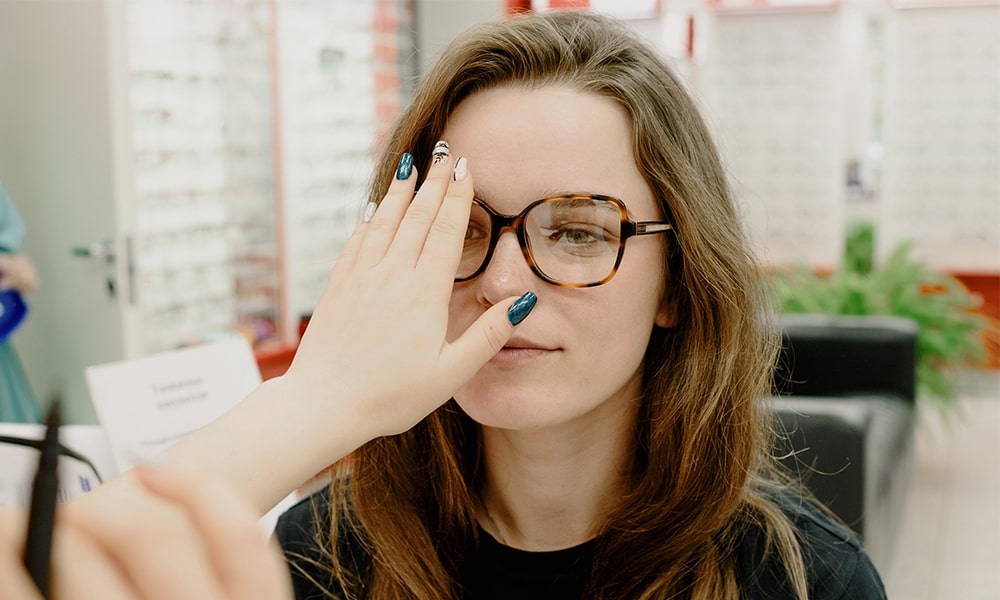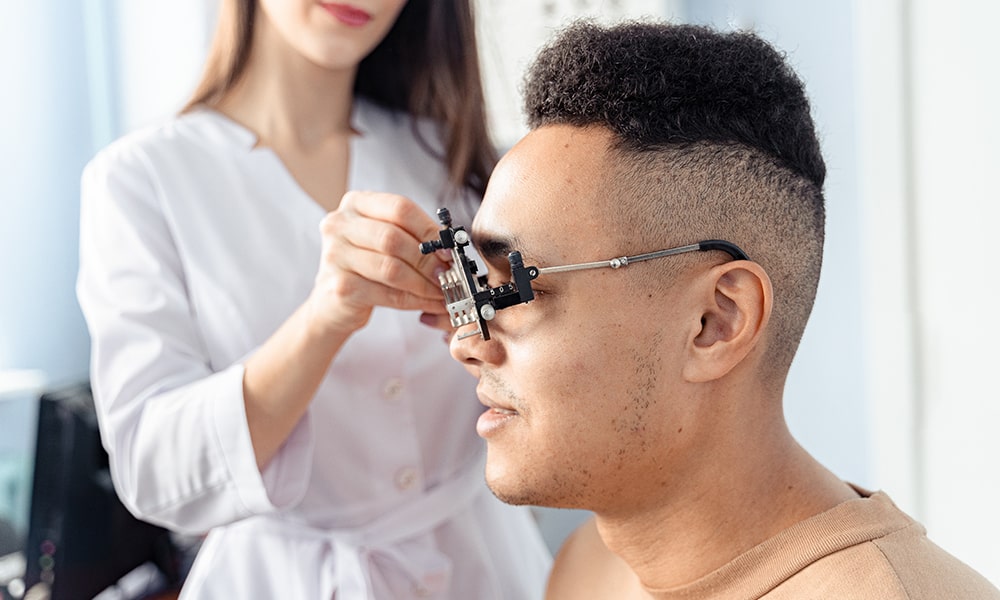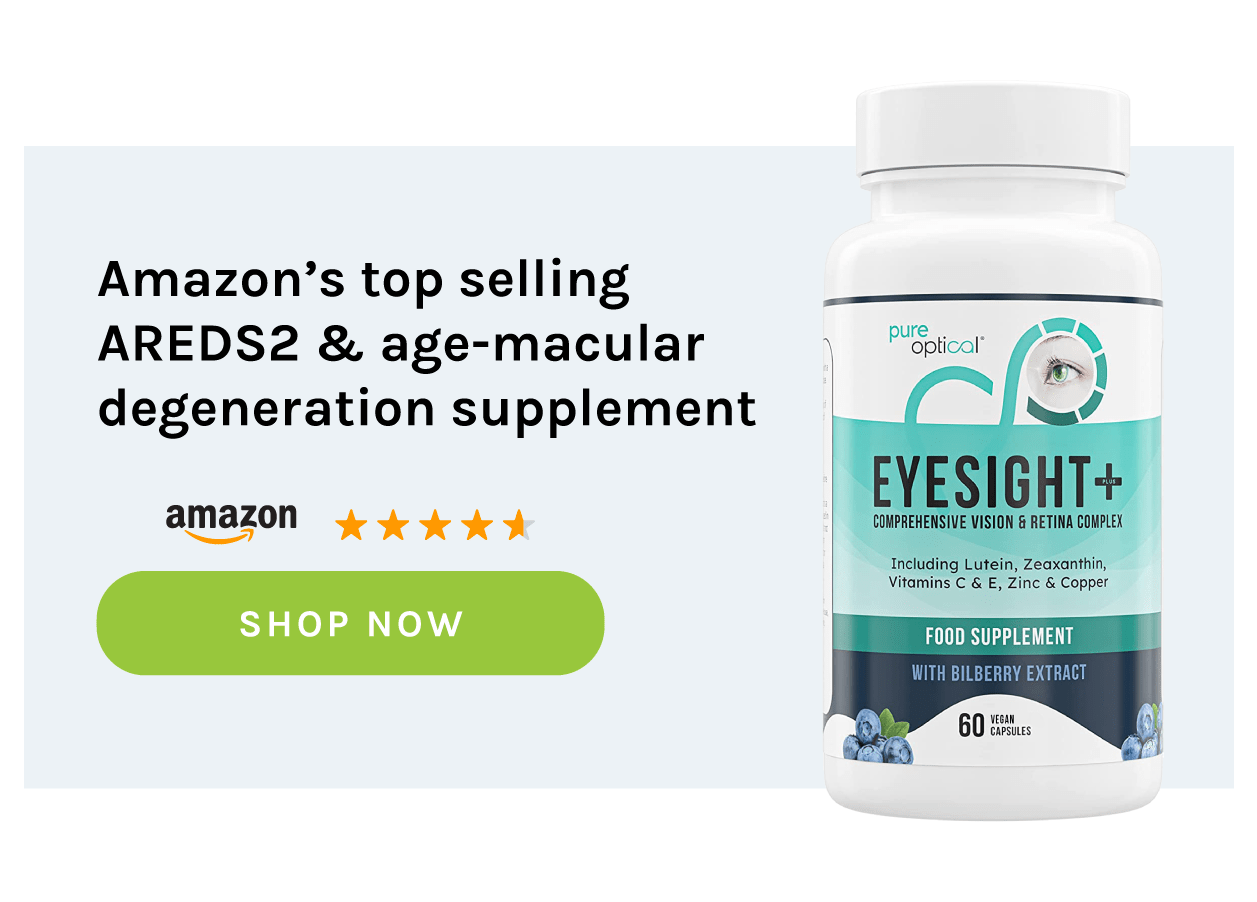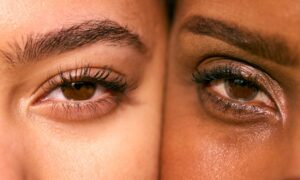Macular degeneration is a progressive eye condition affecting the macula, the central part of the retina that allows us to see fine details. Of the two main types, wet and dry, wet macular degeneration is less common but more severe.
In this article, we’ll explore the nature of wet macular degeneration, its symptoms, causes, treatment options, and the role of nutritional supplements in its management.

Symptoms of wet macular degeneration
Unlike the dry form, which progresses slowly, the symptoms of wet macular degeneration can develop quickly. Common symptoms include:
- Visual distortions: Straight lines may appear wavy or bent.
- Central vision loss: A blurry or blind spot in the central field of vision.
- Reduced color intensity: Colors may not appear as bright as before.
- Difficulty adapting to low light levels: You might find it hard to see in dimly lit places.
If you experience sudden vision changes, it’s crucial to consult an ophthalmologist immediately.
What causes wet macular degeneration?
Wet macular degeneration occurs when abnormal blood vessels grow under the retina and macula. These blood vessels can leak fluid or blood, distorting or scarring the macula, leading to rapid vision loss. Factors contributing to its development include:
- Age: It predominantly affects people over 60.
- Genetics: A family history of the disease increases one’s risk.
- Smoking: This can double the risk of developing macular degeneration.
- Other factors: Include high blood pressure, obesity, and a diet high in saturated fats.
Diagnosis and treatment of wet AMD
Diagnosing wet macular degeneration involves a comprehensive eye exam, including tests like fluorescein angiography and optical coherence tomography.
Treatment options for AMD include:
- Anti-VEGF treatment: This involves injecting medicine into the eyes to stop new blood vessels from forming.
- Photodynamic therapy: A drug is injected into the arm, which travels to the abnormal blood vessels in the eye. A laser is then shone into the eye to activate the drug, which damages the abnormal blood vessels.
- Laser surgery: This procedure aims to destroy the abnormal blood vessels. However, this is less common than the other treatments.
Prompt treatment can slow vision loss and may even restore some vision.
Role of nutritional supplements in managing macular degeneration
Scientific studies, including the Age-Related Eye Disease Study (AREDS), have shown that certain nutritional supplements can help reduce the risk of progression in some people with macular degeneration. The AREDS 2 study, a follow-up to the original AREDS, fine-tuned the recommended formula.
One such product available is Eyesight Plus AREDS 2 Vitamins. This supplement is specifically formulated based on the findings of the AREDS 2 study. It contains a combination of vitamins C and E, zinc, copper, lutein, and zeaxanthin.
It’s essential to consult an ophthalmologist before starting any supplements, as the formula might not be suitable for everyone, especially those with specific health conditions or on particular medications.

The holistic approach to care
For many patients, the diagnosis of wet macular degeneration can be daunting. Beyond the clinical treatments, it’s important to consider the psychological and emotional aspects. Counseling, vision rehabilitation services, and adaptive tools and training can make a significant difference in helping individuals lead fulfilling lives.
In conclusion, while wet macular degeneration remains a challenging condition, the combined efforts of the US’s healthcare system, research institutions, and supportive communities provide a comprehensive approach to managing it. With the inclusion of beneficial nutritional supplements, the hope is to offer patients a holistic approach to care that addresses both the physical and emotional aspects of the condition.





